Suchergebnisse
Biogas from Crop Digestion
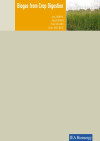
Diese Broschüre ist im Oktober 2011 erschienen. Das Thema der Broschüre ist der Einsatz von Energiepflanzen in Biogasanlagen zur Bereitstellung von erneuerbarer Energie aus Biomasse.
J. Murphy, R. Braun, P. Weiland, A. Wellinger
Herausgeber: IEA Bioenergy
Englisch, 24 Seiten
Downloads zur Publikation
The accompanying process of the FIT4UrbanMission
To face the diverse challenges of climate change together, the available and functional solutions must be made accessible to everyone. Therefore, Austria relies on a joint approach.
Integrated Energy Contracting (IEC) (2009)

A new ESCo Model to Combine Energy Efficiency and (Renewable) Supply in large Buildings and Industry - Discussion Paper
Innovation meets tradition
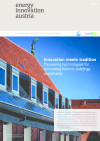
Pioneering technologies for renovating historic buildings sustainably
energy innovation austria
1/2014
Herausgeber: BMVIT und Klima- und Energiefonds
Englisch, 8 Seiten
Downloads zur Publikation
IEA-GHG Annual Review 2012
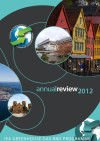
Herausgeber: International Energy Agency - Greenhouse Gas R&D Programme
Englisch, 36 Seiten
Downloads zur Publikation
IEA EBC Annual Report 2014
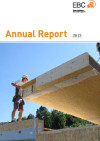
Herausgeber: IEA-EBC Programm
Englisch, 58 Seiten
Downloads zur Publikation
IEA Bioenergy
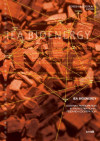
Austrian Participation in an international Research Cooperation
Forschungsforum
4/2000
Herausgeber: BMVIT
Englisch, 6 Seiten
Downloads zur Publikation
Road Map for Dealing with Non-Permanence in LULUCF and REDD (2010)

To date the land use sector has failed to contribute to achieving climate mitigation goals in proportion to its potential. A major reason for this is the lack of a sufficiently robust and attractive solution to the non-permanence (reversibility) of carbon stocks that would garner stron support from Annex-I country stakeholders, including carbon market investors. Unless a solid solution to the reversibility problem is developed, REDD+ will also fail to result in significant increase in the use of forests to mitigate climate change.
Englisch
Solar Heat WorldwideMarkets and Contribution to the Energy Supply 2004

The goal of the report was to document the solar thermal capacity previously installed in the important markets worldwide, and to ascertain the contribution of solar plants to the supply of energy and the CO2 emissions avoided as a result of operating these plants.
Englisch
IEA-HPP Annual Report 2014
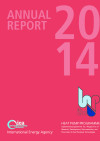
Herausgeber: IEA Heat Pump Programme (HPP)
Englisch, 24 Seiten
Downloads zur Publikation
IEA EBC Annual Report 2013

Herausgeber: IEA-EBC Programm
Englisch, 56 Seiten
Downloads zur Publikation
Solar Heat Worldwide - Markets and Contribution to the Energy Supply 2005

The solar thermal collector capacity in operation worldwide equaled 107.8 GWth corresponding to 154 million square meters at the end of the year 2005. Of this, 90.7 GWth were accounted for by flat-plate and evacuated tube collectors and 16.2 GWth for unglazed plastic collectors. Air collector capacity was installed to an extent of 0.9 GWth.
Englisch
Energy Flexible Buildings – Potential and Performance
26th September 2017, 10.00 a.m.
Kuppelsaal TU Wien, Karlsplatz, 1040 Vienna
The aim of this workshop was to bring together international experts and the Austrian building and demand response community for know-how exchange and discussion on the topic of energy-flexibility in buildings and its role for smart grids. The focus was on thermal and electricity based flexibility potential of buildings and practical experience with first implementations and demonstrations.
IEA EBC Annex 63 - Open seminar and site visits
17. October 2017
Fylkeshuset, Erling Skakkes gate 14, Fylkestingsal B, 3rd floor, Trondheim, NO
Situated by the sea, the charming Trondheim City will be the location for our 7th and last project meeting of the IEA EBC Annex 63. Experts will present the latest within planning tools and guidance, together with "lessons learned" to the topic integrated urban and energy planning.
Implementation Plan of SET-Plan Action 4
Lately the SET-Plan Steering Group endorsed the Implementation Plan of SET-Plan Action 4 "Increase the resilience and security of the energy system".
Eco-efficient Product Service Systems
Step by step methodology for the development of future markets by the introduction of eco-efficient product service systems
Demoobject energy-autarkic solarplant
Within the project at hand a production plant with store house and offices had been constructed. It serves as a reality testing field for long-term measurement of components and systems developed in previous projects. It serves for the demonstration of innovative energy systems and components for the interested public and for experts.
New standards for old houses - concrete
The campaign is, orientated on the target group, a linked extension of the reconstruction guidance "Neue Standards für alte Häuser" ("New standards for old houses") on the building trade and subconstruction work as well as on the awarding authority.
Sustainable energy supply for Austria
Rapidly increasing energy consumption and decreasing resources of fossil fuels lead to dramatical economical, ecological and social problems.This study identified the feasible long term potential of renewable energy sources. Then ways were developed how to supply the demand for future energy consumption with renewable energy sources, despite increasing energy services.
Natural Dyes for the Textile Industry
New cooperations between agriculture und industry are necessary to ensure the utilization of renewable materials. The project´s focus is upon natural dyes and their application in textile industry. The goal of the project is to create a contact institution which connects various suppliers of diverse plant materials, takes on the processing, and standardising of the natural dyes, and makes a product that can be used by the industry.
